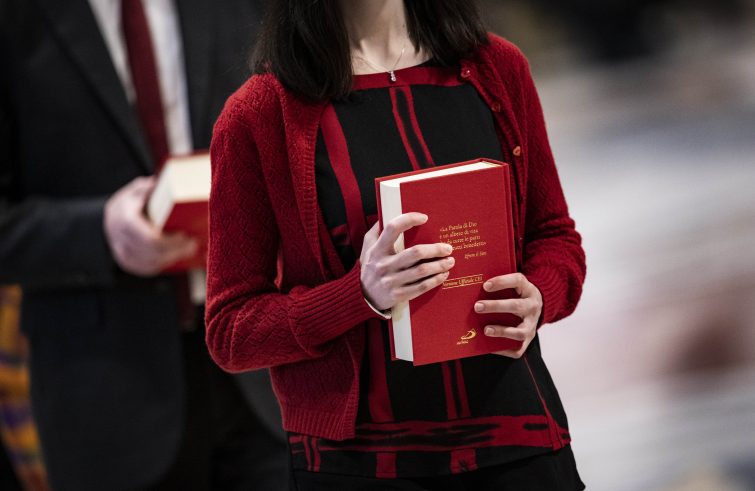
Violence against women is entrenched in the posture of a given culture. It isn’t something that sprouts like a mushroom or that can be explained with individual wickedness or pathology. Violence against women has always borne the legacy of a culture that considers women as inferior to adult men, both in terms of their dignity and their rights – this is true also in Europe. It is precisely this difference that connects them to other categories of people who are equally victims of inequality, such as children, elderly people, and the destitute of all kinds. To this end, our public institutions dedicate a day to women – March 8 – against discrimination at work, and a day – today, November 25 – against all forms of violence inflicted on women by boyfriends, husbands, ex-boyfriends, and – let us not forget – by the hideous exploiters of forced prostitution and human trafficking.
Women who had been chosen and desired and who trusted and entrusted themselves to their husbands to the point of mothering their children, only to be threatened, forcibly possessed in both body and soul, slaughtered and killed by men who frequently inflict destruction also upon themselves.
In Scripture we find numerous occurrences of violence against women. In fact, a whole range of stories are narrated to draw attention to the many forms of violence against women in androcentric and patriarchal societies. The first case is that of the abuse of their role as mothers, which used to be their main, most important role. The barren woman was to blame for some deep wrong, and it was therefore her husband’s right to take another wife, to lay with his slave, or to repudiate the woman he had married if she remained childless. Polygamy is also a form of violence against women and so are the laws of repudiation which Jesus went on to criticise in no uncertain terms (cf. Mt 19:3ff). Not to mention the case of adultery whereby the wife could be stoned to death or the daughters whose fathers had full authority over, including offering them as “sacrifices.” Is it not the story of Jephthah’s daughter who was slain in her prime, in fulfilment of her father’s wicked idea of making a vow to God? (cf. Jdg 11:29ff). Abuse of paternal power over daughters, disguised as the will of God. In the above-mentioned cases, perhaps the greatest form of violence was the Law that allowed this to happen.
But there were also examples of violence that were fortunately punished by the Law.
We all remember David’s crime against Bathsheba wherein the king abused his power to take another man’s wife. Talis pater, talis filius: Amnon – David’s eldest son – falls for his sister Tamar and refuses to eat, pretending to be sick. To restore his appetite he demands that his sister bring him something to heat. And so she does. Amnon presses her for sex and rapes her. Soon after, “Amnon hated her with intense hatred. In fact, he hated her more than he had loved her,” (cf. 2 Sam 13:15). Not only were women easy prey to male violence and arbitrariness, they did not even have the right to express their feelings, to love in return: this too is violence against women!
And there is more. The “righteous” Lot, Abraham’s nephew, offered his daughters’ virginity to the Sodomites on the condition that they would not rape his guests (cf. Gen 19:8-9), just as the Levite of Ephraim cast his wife’s body out of the house instead of his own (cf. Gen 19:25). But while the sodomites did not rape Lot’s daughters, the sons of Israel raped the woman all night long until she died. What even Sodom had not managed to do, God’s people did! (cf. Jdg 19:25).
In Israel, women were barred from entering the most private and sacred chambers of the Temple, and much violence against them ensued from this exclusion. Despite the Gospels, that recognise and extol women’s outright dignity, the Church continued to practise sacred distances, especially when – after the Council of Trent – it became strongly clericalised. That which the Middle Ages failed to do was done in the modern age against women. In fact, it is worth remembering the beautiful story of Jacopa dei Settesoli, a dear friend of Saint Francis. Referring to her when she came to Assisi, he said: “let her in and bring her to me, because for Brother Jacopa the enclosure established for women is not to be observed” (from the Major Legend).












